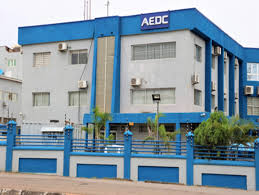DR Congo, Rwanda Hold First Oversight Talks Following Peace Deal

By Kamal Yalwa | August 2, 2025
The Democratic Republic of the Congo (DRC) and Rwanda have convened the inaugural meeting of a joint oversight committee in Washington, marking a tentative step toward implementing a peace agreement signed in June.
The African Union, Qatar, and the United States—key backers of the deal—participated in Thursday’s meeting, which aimed to monitor progress and maintain momentum toward peace in the conflict-ridden Great Lakes region.
According to a joint statement released by both governments on Friday, the committee “discussed progress on implementing the agreement” signed during a high-profile summit hosted by U.S. Secretary of State Marco Rubio. The June 27 accord, seen as a turning point after years of deadly conflict, pledged respect for territorial integrity and a halt to hostilities in eastern DRC.
Implementation Lags Despite Initial Momentum
Under the terms of the deal, Rwanda agreed to withdraw its troops from eastern DRC within 90 days, while both nations committed to establishing a joint security coordination mechanism within 30 days. However, that timeline has already begun to slip.
More than a month after the agreement was signed, there has been no meeting of the joint security body, and operations targeting the DRC-based rebel group Democratic Forces for the Liberation of Rwanda (FDLR) have yet to commence. The withdrawal of Rwandan troops has also not begun.
Despite these setbacks, U.S. Africa adviser Massad Boulos insisted the deal is not derailed. “There was no timeline for that,” Boulos said, referring to operations against the FDLR. “If you look at the chronology of what we’ve been able to do since April, it’s been extensive, on point, and very much in line with our aspirations.”
Tensions Still Simmer on the Ground
Military and diplomatic sources say that while the talks continue, armed groups on both sides are reinforcing positions. The Rwandan-backed M23 and Congolese-aligned Wazalendo militias have reportedly strengthened their presence along contested front lines.
The peace agreement includes vague provisions on economic cooperation and mineral trade, but critics argue the deal lacks specifics on enforcement and verification, particularly regarding troop movements and disarmament timelines.
While the oversight committee is designed to address such gaps and disputes, analysts say the fragile trust between Kigali and Kinshasa, combined with persistent insecurity, will test the deal’s durability in the months ahead.




